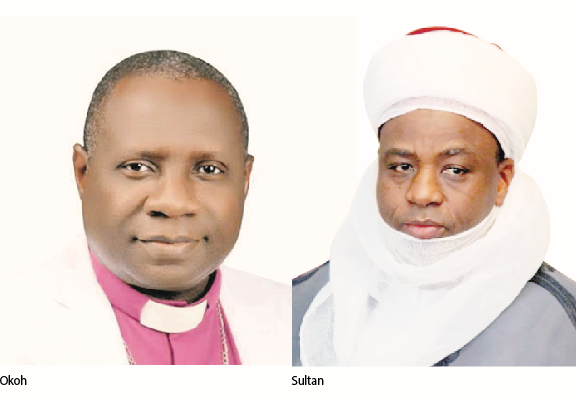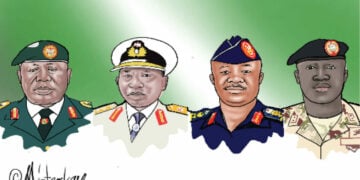Salvation, liberation, redemption, rescue and some other words that are similar in meaning are what religious preachers use to convey or interpret messages. In whichever context each of those words is used, it is usually meant to create or re-enforce the impression that the main function of a religion is the literal salvation or liberation or redemption or rescue of bodies and souls, which is the basis of the belief in any of the religions by its particular adherents.
We are always rightly told by preachers that belief in God in the form prescribed by Him as contained in the religious scriptures is the most essential ingredient of a perfect human existence. Individual adherents of each religion or groups of them, in varying degrees, always strive to manifest their convictions in the way(s) they worship God and the manner(s) they relate to the fellow believers or any other group(s) of people.
In other words, religions are the best instruments for the construction, modification and refinement of characters of their respective adherents and therefore the most necessary component of a decent or, at least, functional human society. What is widely considered as most common and natural in the inter-relationships amongst respective believers of diverse religions is the competition in the continuous display of noble characters with which they will always want to be identified.
Yes, religious conflicts that result in wars to which health, wealth, time and souls are lost are, arguably, usual occurrences and therefore a part of the fact about the co-existence among religious believers. At almost all levels—global, continental, regional, national, state and community—hot exchanges and, sometimes, violent conflicts have been some of the most dominant features of co-existence among peoples.
A lot of experiences have fully shown that many believers, in a bid to either propagate their respective faiths or interrogate other people’s ways of worship easily make pronouncements and/or carry out actions that are inimical to religious harmony. There have, in fact, been regular manifestations of religious intolerance that are generally caused by the ‘defence and/or attack’ styles of many religious believers.
In other words, the low appreciation of the vital need for the show of respect for beliefs of others in the course of propagation and/or interrogation remains the major cause of religious violence to which peace-loving people are vehemently opposed. The clear display of insensitivity to the religious feelings of one another as evident in the unfortunate indulgence in the dangerous act of provocation continuously creates and sustains a heightened tension in the society.
Apart from the original or natural differences between, for example, the two major religions—Islam and Christianity—there appears a consistent effort by some provocateurs to continue to cause and sustain violence at various levels. Such elements are definitely not those whose faith in God or devotion to their chosen faiths are exceptional, but are merely adherents whose understanding of the essence of religions is negligible.
They are such people who have a huge tendency for incitement, intimidation and manipulation of sentiments, all in a bid to escalate suspicion and resultant violence. The combination of the pronouncements they make and the acts they execute in the course of religious propagation or interactions with the other people has already constituted a challenge to all. Or how else can the insult of messengers of God, mutilation of religious scriptures and desecration of places of worship as well as the violent reactions to them, which are familiar experiences, be explained?
The challenge is a lot more for a country like Nigeria that is truly heterogeneous in every respect, whose citizens are therefore extra-ordinarily sensitive to varying issues and situations, than for those other countries that are clearly less so. There is an absolute penchant, on the part of the various categories of Nigerians, for the use of religious sentiments in the interpretation of issues in a manner that is suggestive of an intent to cause chaos.
It is a challenge that the various segments of the country’s leadership should now, more than ever before, be completely prepared to tackle so that the disturbing rate of violence can be successfully brought down. All the foreseen opportunities for Nigeria can only translate into real development if the kind of religious extremism which is regularly displayed in the forms of violent attacks and counter-attacks on one group of believers or another is effectively eroded.
Happily, the reactions of some of the religious leaders to certain past acts of provocation and violent reactions are a source of hope for a better handling of matters that are dangerous to religious harmony. The recent condemnation, by some respected Nigerian Christian leaders, of the act of burning the Holy Quran in Sweden, which was similar to the kind of reservations expressed by a lot of Muslim community leaders over some past reactions to some real or alleged insult of Islam, has really indicated that some positive changes are taking place at the leadership level.
More precisely, the widespread condemnation of the recent killing of a Sokoto-based butcher, Usman Buda, over an alleged blasphemy against the Holy Prophet Muhammad (peace be upon him) indicates that such acts are no longer tolerable. It all looks like there are very many right-thinking leaders across the two religions in Nigeria who have resolved to ensure that the sacredness of the religions as well as the sanctity of the human lives are satisfactorily respected.
Within and between the two religions there are issues over which genuine scholars and patriotic Nigerians are consistently expressing concern. Such people have continued to make the argument that those who proudly claim to be struggling for or against one religion or another have only wrong perceptions about the religious issues in the country in particular and the world in general as a result of which they, rather than contribute to peace, create an atmosphere of suspicion and even war.
GOOD-BYE!
I wish to humbly announce that I will cease to be the Thursday Columnist of this respected newspaper as a result of my appointment as the Senior Special Assistant on Strategic Communication by the Executive Governor of Kaduna State, Senator Uba Sani.
While I remain grateful to the LEADERSHIP GROUP LIMITED for the opportunity given to me to serve as a Columnist, I also wish to advise the readers to continue to keep faith in this newspaper.
Goodbye to you all!





